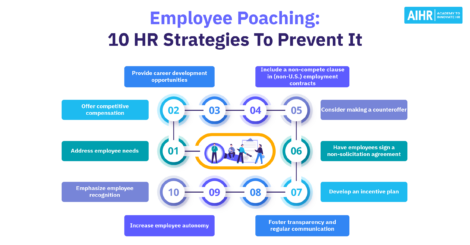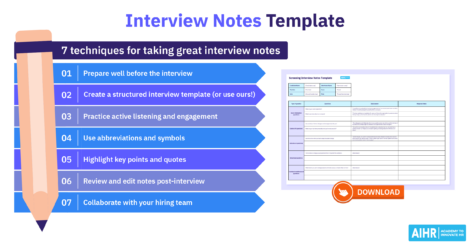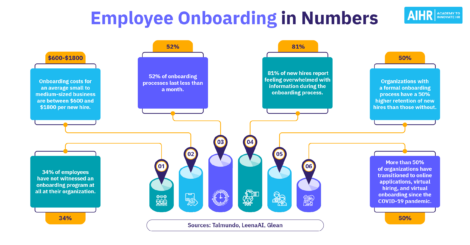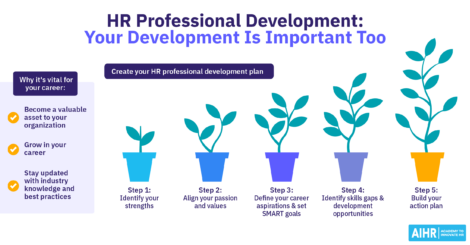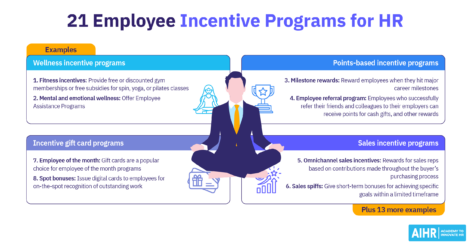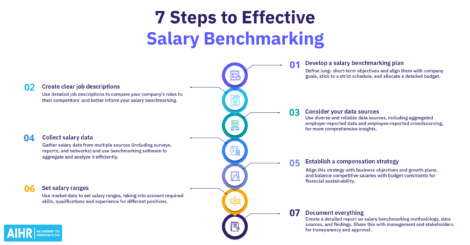25 Cultural Fit Interview Questions Plus Sample Answers You Could Expect

If your hiring procedure doesn’t include cultural fit interview questions, it’s time for an overhaul. Why? Because a strong company culture is directly correlated with higher employee engagement and lower churn.
Just ask Zappos, the billion-dollar US-based online shoe and clothing retailer known for its non-negotiable commitment to cultural fit and creating an environment where employees genuinely love to work. Zappos uses various tactics in their hiring process to assess ‘cultural fit’. One method involves assigning two hiring teams to assess each candidate. One team focuses on skills for the job, and the other is dedicated to asking cultural fit interview questions.
Then, to ensure recruits understand and embrace the culture, they complete a four-week ‘boot camp’ where they receive training in all departments of the company and are immersed in its philosophies and values. Upon completion, new hires are offered US$2,000 to quit, providing an easy exit for staff who don’t feel they’re suited.
Contents
What is culture fit?
Why is identifying candidate culture fit so important?
25 cultural fit interview questions to ask (with sample answers)
What is culture fit?
In business, the term culture fit relates to how compatible employees are with an organization’s culture, goals, and vision. Staff members with a good culture fit are those with the skills, beliefs, and behaviors that are aligned with the company’s core values. For instance, organizations that nurture a culture of positivity, productivity, and performance will be seeking candidates who naturally embody these traits.
Culture fit is an essential driver to improve employee satisfaction, engagement, and retention; just ask Zappos, whose employees largely work in call centers – environments renowned for high churn. Where typical call centers experience a 30-45% employee turnover rate, Zappos has an 18-20% turnover rate for the same positions with the same pay.
Why is identifying candidate culture fit so important?
Hiring for cultural fit can be a powerful tool for building strong and successful teams. However, your approach must be intentional. Cultural fit should be about shared values and commitment to the company’s goals, not about creating a homogenous group that excludes diverse perspectives and potential.
The benefits of cultural fit:
- Stronger teams: Shared values and communication styles lead to better collaboration, problem-solving, and productivity.
- Happier employees: Employee content boosts satisfaction, reduces burnout, and increases engagement.
- Lower turnover: Employees who feel like they belong are more likely to stay, saving time and money.
- Personal growth: A supportive environment encourages learning and stepping outside your comfort zone.
- Meaningful work: Aligning your values with the company’s mission leads to a deeper sense of purpose.
Overcome the risks of hiring for cultural fit:
- Define ‘fit’ objectively: Clearly define what ‘cultural fit’ means in terms of company values, work ethic, and essential skills – not subjective personality traits.
- Focus on diversity and inclusion: Actively seek diverse candidates and create an inclusive hiring process that recognizes the value of different perspectives and experiences.
- Use objective measures: Combine your ‘fit’ assessment with objective testing, skill evaluations, and reference checks to ensure qualifications and performance are also considered.
- Beware of unconscious bias: Train hiring managers to recognize and mitigate unconscious biases throughout the process.
- Don’t ignore performance: Ultimately, the best indicator of success is the candidate’s ability to perform the job effectively, not just their ‘fit’ with the existing culture.
HR tip: Get validation
A whopping 80% of candidates lie in a job interview, according to a recent study by ResumeLab. For recruiters or hiring managers looking for authentic answers to their cultural fit interview questions, it’s essential to cross-check feedback provided by candidates with reference checks to ensure the character portrayals stack up. Be transparent about this approach with your candidates to get honest responses to your company culture interview questions.
25 cultural fit interview questions to ask (with sample answers)
Let’s take a look at questions hiring managers can ask to establish a candidate’s cultural fit:
Commitment cultural fit interview questions
1. Tell us three things you saw on our website that jumped out at you about our company and our products/services.
You want to hire a candidate who wants your job, not just any job. In asking candidates to highlight not one but three things about your offering, you’ll be able to uncover how much effort they put into researching your company as well as their level of understanding of what you do.
Sample answer: “I saw on your website that you’ve recently launched a new line and are expanding into the Middle East and Africa. I also found it interesting to read about your annual report statement on the recent private equity investment and your 32% bump in annual earnings.”
2. Based on what you know about our company, can you explain our vision, mission, and values?
Again, this question is designed to help you see how well the candidate prepared for the interview and their level of comprehension about your company’s guiding principles and objectives.
Sample answer: “From what I know about Tesla, your vision is to create the most compelling car company of the 21st century, your mission is to accelerate the world’s transition to sustainable energy, and your values appear to be centered on innovative problem-solving.”
Personality cultural fit interview questions
3. How would your former colleagues and managers describe you?
When you ask a candidate to describe themselves, they may paint themselves in a more favorable light. However, when you ask candidates how their former bosses and colleagues would describe them, you’re more likely to get an accurate characterization.
Sample answer: “My colleagues would likely describe me as a positive person who did my work to the best of my ability and actively sought out feedback and opportunities to learn and grow.”
4. Can you provide an example of a challenge you’ve had to overcome in your role and what you learned about yourself?
With this type of question, hiring managers should not only be attuned to the details of the story itself but also to how the candidate frames their experience. Look for cues on whether they are driven by an internal or external locus of control and optimism versus pessimism.
Sample answer: “In my previous role as a project manager, I encountered a significant challenge when a key team member unexpectedly resigned during the crucial phase of a major project. This departure left a gap in expertise and threatened the project’s timeline. To address this challenge, I took immediate action by redistributing tasks among the remaining team members based on their strengths and expertise. I also initiated a recruitment process to fill the vacant position.”
5. Give us an example of three well-known individuals you most admire and why.
This question is designed to highlight character traits that the candidate respects and aspires to. In asking for three examples, you can avoid getting only the obvious choices, such as Steve Jobs or Elon Musk. Follow your question up with ‘why’ to scratch beneath the surface.
Sample answer: “My top three personality traits are the ability to face adversity head-on, my belief that a positive mindset can help you accomplish anything, and being tolerant of differences in others.”
6. What are your top three personality traits you’re most proud of?
Most candidates will prepare for interviews by planning and rehearsing their answers to common questions. In asking for three examples of their most cherished personality traits, you’re likely to get a complete and more accurate picture.
Sample answer: “My top three personality traits are the ability to face adversity head-on, my belief that a positive mindset can help you accomplish anything, and being tolerant of differences in others.”
7. Can you describe a mistake you made at work and what you learned from the situation?
This question will help you to assess a candidate’s forthrightness and self-awareness. Are they prepared to be open about sharing details on a misstep in an interview, and are they mature enough to have drawn a strong lesson from the situation?
Sample answer: “In my first sales management role, I trusted that my team of sales reps would accurately update their pipeline metrics – data which I needed to prepare my own management sales forecasting reports. However, not all the data was updated correctly. As a result, my forecasting reports were inaccurate. I learned that, as a manager, you are ultimately responsible for errors made by your team and that engaging with your team’s work and spotting potential problems up front can never be overlooked or delegated.”
8. Can you give us three real work-related developmental areas that you would like to strengthen?
When asked about a weakness, many candidates default to providing strengths disguised as weaknesses with clichés such as ‘I’m a perfectionist,’ or ‘I often take work home with me.’ Asking for three real examples should help you gain a more realistic picture of them while also assessing the candidate’s level of self-awareness and openness.
Sample answer: “When I’m faced with a difficult task, I sometimes get overwhelmed and procrastinate. But I’ve changed my approach by breaking the task into smaller actions and then starting at the top and working my way down the list. I also want to read more than I do now to improve my overall business acumen. Finally, I want to get a mentor to help me identify my blind spots and prepare me for a management role.”
Work environment cultural fit interview question
9. Would your ideal job be in a remote, in-person, or hybrid environment?
This straightforward question helps you understand if the candidate’s preferred way of working fits your workplace’s context.
Sample answer: “I’m adaptable and have performed well in both remote and in-person settings, but the balance of a hybrid work environment appeals most to me.”
10. Describe the type of work environment in which you are most inspired and productive.
This question helps you understand if the candidate’s preferred environment aligns with yours.
Sample answer: “I find collaborative environments that encourage open communication and knowledge sharing stimulating, but I also like an environment that provides time and space to shut out the noise and focus on work.”
Team dynamic cultural fit interview questions
11. Do you prefer working alone or within a team?
This question helps you understand if the candidate’s preferred way of working aligns with your team dynamics.
Sample answer: “I enjoy both working independently and collaborating with a team. I’m a strong individual contributor, but I also enjoy interacting with a good team.”
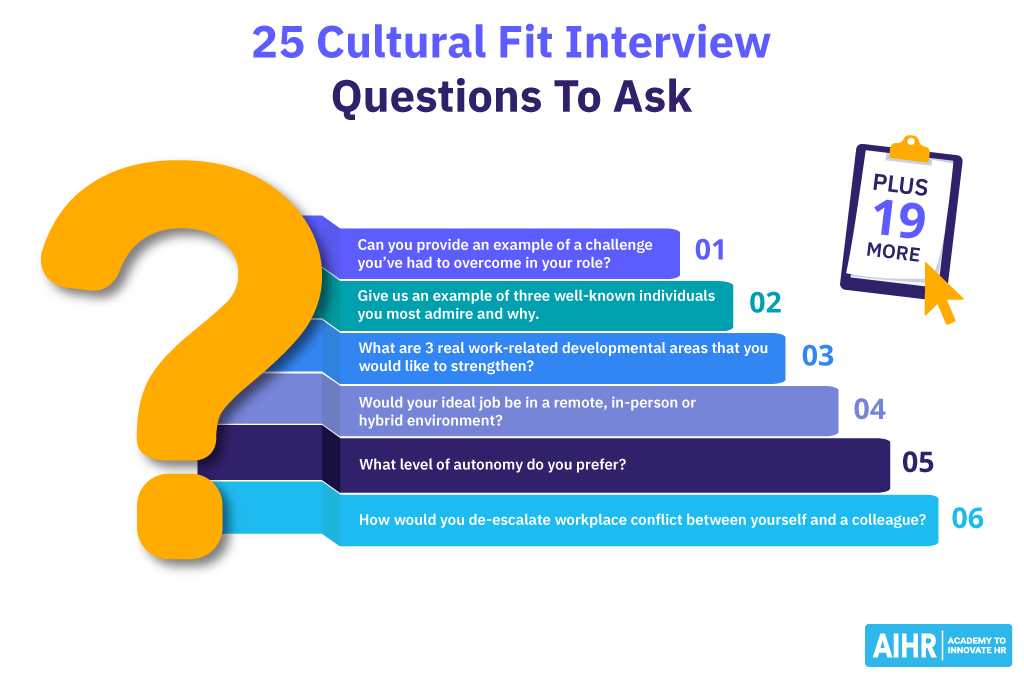
12. If a colleague has a question for you, do you prefer them to send you an instant message or stop by your desk?
This question helps you understand if the candidate’s preferred way of communicating fits your company culture.
Sample answer: “I’m flexible and happy to answer questions however my colleague feels most comfortable. I like open communication and prompt responses, regardless of the method.”
Management cultural fit interview questions
13. How often do you like to meet with your manager?
This question uncovers the level of interaction and support that a candidate expects from their manager.
Sample answer: “I appreciate regular check-ins to stay aligned on priorities and goals – but I’m also comfortable working independently. I can adapt to my manager’s preferred style.”
14. What level of autonomy do you prefer?
This question helps you understand the level of supervision the candidate prefers relative to your management culture.
Sample answer: “I thrive in an environment where there is a balance of direction and autonomy. I value ownership of my work, but I also appreciate guidance and feedback.”
15. Describe the best and worst management styles you have encountered and explain why.
This is another question where recruiters or hiring managers should listen to the accounts’ details and how the candidate frames their experience. Look for clues on whether they are driven by an internal or external locus of control. Also, whether their answer is substantive based on how their managers helped or hindered work outcomes and delivery as opposed to focusing solely on their managers’ personality traits.
Sample answer: “My worst experience was with an egotistic manager who felt threatened by the top performers on her team and tried to undermine them rather than support them. My best management experience was with my first boss, who was firm but fair. She was clear about her expectations, had an open-door policy, and took the time to support us with training and coaching to make sure we all succeeded.”
16. Do you prefer formal annual reviews or regular feedback throughout the year?
This question helps you understand if the candidate’s expectations and reliance on feedback align with management procedures in your organization.
Sample answer: “I value regular feedback because it helps me improve throughout the year. Formal reviews are also important because they provide an opportunity for an in-depth, comprehensive assessment necessary for pay increases and promotions.”
Performance cultural fit interview questions
17. What system do you use to manage your time and deadlines? How do you think your previous colleagues or managers would rate your level of organization, and why?
Top performers are typically self-managers who do not require micromanagement. This question helps you understand if the candidate has an effective approach and track record of planning and executing their to-do list.
Sample answer: “I currently use Microsoft’s To Do app to plan my day and keep track of all my tasks and deadlines. In my previous role, I used to write down my tasks for the day on a notepad. My previous managers would likely rate my organization levels as high because I usually got through all my work and delivered deadlines on time.”
18. What are you most proud of having personally achieved at work in your previous roles?
This question helps you understand how a candidate has striven for achievement in past positions.
Sample answer: “In my previous role, our web designer took three months of maternity leave, and I volunteered to fill in for her. She gave me two weeks of training, but there was a lot I had to learn by myself, so I taught myself by watching tutorials. By the end of the three months, I was fully conversant on WordPress and launched a new resource and blog section on the website.”
19. Can you provide a few examples of where you went above and beyond at work to achieve results in previous positions?
This question enables you to understand if the candidate has a propensity to invest additional effort in ensuring successful outcomes. It also enables you to assess whether the candidate possesses a proactive mindset, indicative of a strong work ethic.
Sample answer: “In my previous position, we worked on a lot of pitches to land new clients. I always put in the extra time and effort to ensure we delivered great presentations, and three out of five pitches I worked on resulted in our company signing new clients up.”
Conflict cultural fit interview questions
20. Can you think of an example where you experienced conflict with a manager or colleague in the past? What did you learn from the situation?
This question is designed to help the recruiter or hiring manager assess the level of openness and self-awareness of the candidate, as well as the actual details about their relationship to and learnings from conflict in the workplace.
Sample answer: “In a previous role, I had a disagreement with a colleague in an open-plan office in front of other people. I learned that was unprofessional and not the best way to confront the situation. Now, if a problem arises with a person, I prefer to discuss the issue with them in private.”
21. How would you de-escalate workplace conflict between yourself and a colleague?
This question helps you assess the candidate’s comfort with addressing conflict and their level of professionalism and emotional maturity in the approach to the situation.
Sample answer: “If a colleague were upset with me, I would first try to talk to them one-on-one to ask them why they were upset, rectify the situation, and apologize if necessary. If that didn’t work, I would ask my manager for support in trying to resolve the situation.”
Career development cultural fit interview questions
22. Describe your dream job in this environment/discipline/sector.
You can always ask the question ‘describe your dream job’ however, the scope of that is vast and may not be helpful in your context. Adding the caveat ‘in this environment, discipline, or sector,’ you’ll get a more realistic answer to help infer a candidate’s aspirations.
Sample answer: “My dream job would allow me to share my ideas and provide input into product design improvements, where I can be acknowledged and compensated for the impact I make.”
23. If you join us, where do you see yourself one, three and five years from now? What is your plan to achieve those goals?
“Where do you see yourself in the future?” is a common interview question. By adding the follow-up question, you can better assess whether the candidate is diligent in their planning to achieve their objectives.
Sample answer: “In one year, I see myself excelling at my annual review in the position I’m applying for today. Within three years, I aim to be promoted to management. And in five years, I’d like to be promoted to senior management. I plan to achieve these goals by excelling in the role if I’m appointed, learning everything I can from my manager, and taking part-time online management courses.”
Work-life balance cultural fit interview questions
24. Can you provide a few examples of stressful work situations you’ve experienced and how you coped with these situations?
This question will help you gauge the candidate’s comfort with stress and their coping mechanisms.
Sample answer: “In my previous role, we experienced a serious loss of data due to a backup malfunction. It involved a month of recapturing financial data while also performing our regular duties. I learned that it’s important to focus on what needs to be done without distractions – and that taking small breaks often is critical to recalibrate.”
25. How do you feel about working after hours, being on-call, and being in contact with the company and/or clients after hours?
This question is designed to uncover a candidate’s expectations of work-life balance and how it aligns with the context of your workplace.
Sample answer: “I prioritize my personal and family time, but I’m also adaptable to after-hours needs when required – so long as they are the exception and not the rule.”
HR tip
Social hiring: In organizations with strong cultures, the employees are often the top ambassadors of the company’s values. Consider involving your most engaged employees in the interviewing process to get their take on whether candidates are a good cultural fit or not.
To sum up
Hiring for cultural fit boosts engagement and reduces turnover because it creates a shared sense of purpose, belonging, and smooth collaboration. People feel valued, motivated, and empowered, leading to less friction and stress.
Lower churn rates and higher productivity also boost your bottom line. But remember to balance cultural fit with diversity for optimal hiring.
Weekly update
Stay up-to-date with the latest news, trends, and resources in HR
Learn more
Related articles
Are you ready for the future of HR?
Learn modern and relevant HR skills, online






